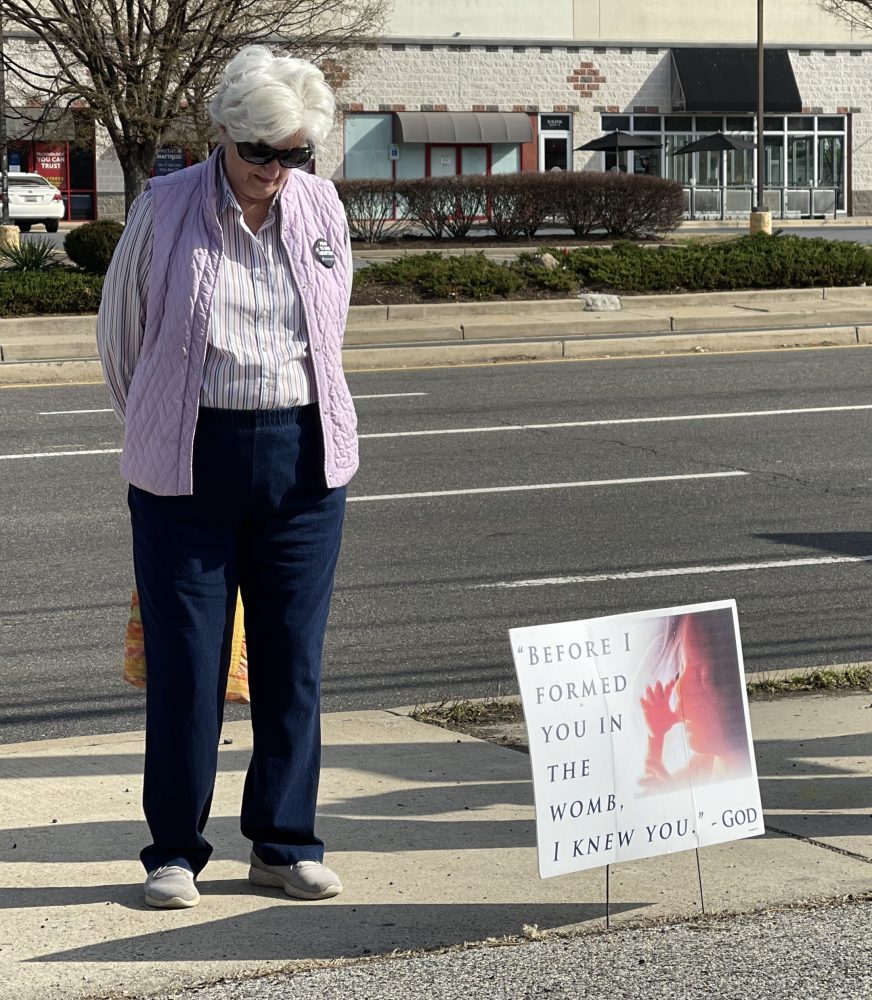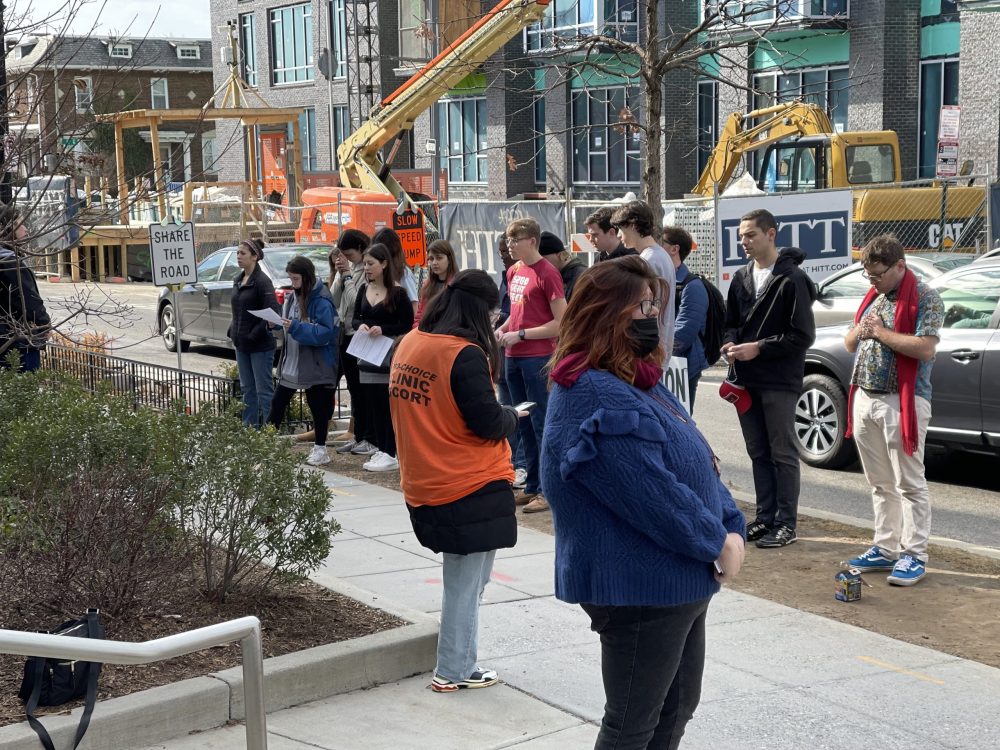WASHINGTON – Construction equipment clanged and hummed over the sound of protesters’ prayers and shouting of obscenities at passersby and patients outside Planned Parenthood Carol Whitehill Moses Center in the nation’s capital.
Such scenes are common around abortion clinics throughout the metropolitan region and the nation.
Patients at clinics in the District of Columbia, Maryland and Virginia are escorted in and out by volunteers with the Washington Area Clinic Defense Task Force (WACDTF) shielding them from anti-abortion protesters outside the facilities.
The escorts are lower-profile figures in the ongoing national debate over abortion.
“I would like to point out that we are protecting freedom of speech. I mean, we are not there to counter them,” said Megan, a WACDTF volunteer trainer who asked that her last name be withheld because she was concerned for her safety. “They can stand there and say whatever they want, and we’re not getting in …we’re not shutting them down. We are there for the patients.”
WACDTF was created in the 1980s to create a “peaceful and reassuring presence for patients, their companions, and staff” through volunteer work, according to the group’s website. The clinics invite the volunteers to escort and aid patients.
The group volunteers at clinics in Maryland, Virginia and Washington. There are similar patient escort groups around the country.
WASHINGTON – Founder and executive director of Progressive Anti-Abortion Uprising (PAAU) Terrisa Bukovinae shouts at passersby in front of NoMa Planned Parenthood in Washington, D.C. (Emily Hahn/Capital News Service)
A federal law, called the Freedom of Access to Clinic Entrances (FACE) Act, passed in 1994, allows protesters at abortion clinics on public property.
A 2014 U.S. Supreme Court ruling set a precedent that a buffer zone on public sidewalks is a violation of First Amendment rights and thus unconstitutional.
As a result, the atmosphere around abortion clinics sometimes can feel confrontational.
Anti-abortion protesters sometimes approach the patient escorts, but the escorts are trained to ignore them and not engage.
When protesters do confront volunteers, they have been called murderers, or baby killers or told they are lacking morality, according to clinic escorts. Some volunteers have been told they are going to Hell, aiding Satan or guarding the gates of Hell, said Megan and another volunteer who requested anonymity due to safety concerns.

Betty Phelps, an anti-abortion protester and member of Grace Bible Church in Seabrook, Maryland, said she doesn’t really have any strong opinions about the clinic escorts but she prays “for their hearts to be changed and consider the life of the baby.”
“I think part of doing the job is not really listening to the nonsense,” the other volunteer escort said. “Like it just…it all becomes the same kind of…cycles of rhetoric and you just kind of have to tune them out.”
Volunteers said they generally see more protesters on the weekends than during the week. Many of them are “regulars,” according to Megan.
“The protesters are there to upset and manipulate you. That is what they consider, like, the success of their…they call it a sidewalk ministry,” said Samatha Clark, a WACDTF volunteer and abortion dula.
Clark has been an abortion clinic escort for five years. She started volunteering because she believes abortions are “a valid, normal medical procedure.” Clark wants to protect all patients from what she called the “level of abuse” they receive from protesters outside of clinics.
Clinic escorts also said more protesters were in the Washington area during the March for Life on Jan. 21 during the anniversary of the 1973 Roe v. Wade Supreme Court ruling that effectively legalized abortion.
New abortion restrictions have been enacted across the country.
Last September, Texas enacted a stricter abortion access law which bans most abortions after a heartbeat is detected. Oklahoma, Missouri, Kentucky and other states in the last two years have written similar bills banning abortion of fetuses once a heartbeat can be detected or other limitations prohibiting abortions.
Maryland’s abortion law states that a woman may legally terminate her pregnancy if the procedure is conducted by the 26th week, before the fetus is viable; or the abortion is to protect the life of the mother, or a fetus has a genetic defect “or serious deformity or abnormality.”
The Supreme Court is expected to rule in June or July on the constitutionality of a Mississippi law that bans abortions after 15 weeks of pregnancy. Anti-abortion advocates anticipate that the conservative majority on the high court either will uphold the Mississippi statute.
Despite the charged surroundings at some abortion clinics, people still volunteer to be patient escorts.
Some days ago at Washington’s NoMa Planned Parenthood, a woman walked through a phalanx of protesters and went straight to a WACDTF volunteer in a bright orange vest.
The woman asked how she could become a volunteer herself. She was handed a pamphlet on how to join the escort group.


You must be logged in to post a comment.